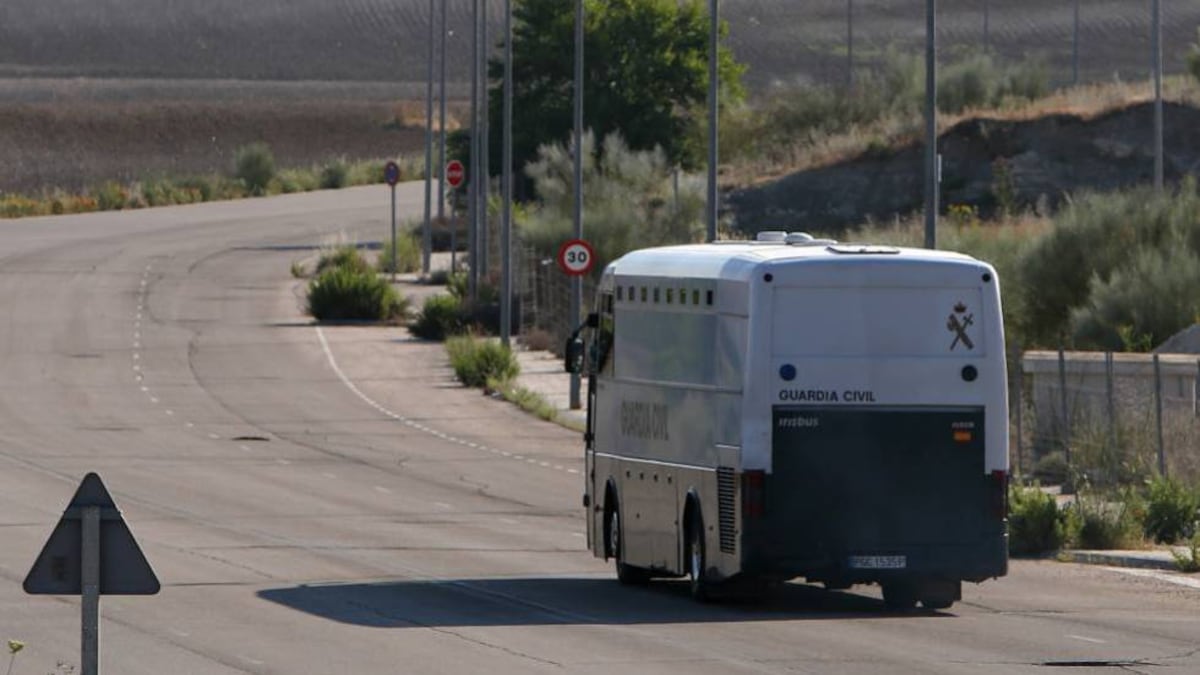After eight months in Madrid jails, secessionist leaders moved to Catalonia
Six of the separatist figures who are currently in custody awaiting trial for rebellion have had their requests granted to be taken to prisons closer to home
Six leaders of the Catalan breakaway bid who were in custody in Madrid awaiting trial for rebellion are being transferred to penitentiaries in Catalonia, prison authorities have confirmed.
Four of the them left Valdemoro penitentiary and two more were taken out of Alcalá-Meco on Tuesday morning. The Civil Guard is in charge of driving the prisoners to jails closer to home.
All six prisoners had requested the transfer to Catalan penitentiaries closer to home
The move comes ahead of a meeting between Prime Minister Pedro Sánchez and the Catalan premier, Quim Torra, a hardline separatist who has pledged to continue down the path of independence.
Oriol Junqueras, Raúl Romeva, Jordi Sànchez, Jordi Cuixart, Dolors Bassa and Carme Forcadell are due to spend the night in Zuera, a prison in Zaragoza province, and resume the journey on Wednesday.
The detainees are making the trip on a specially designed bus that contains micro-cells for individual inmates. Once in Catalonia, the regional police force, the Mossos d’Esquadra, will take over from the Civil Guard and drive the four men to Lledoners penitentiary in Sant Joan de Vilatorrada (Barcelona) and the two women to Puig de les Basses in Figueres (Girona).

All six of them had requested the transfer, and last week Supreme Court Justice Pablo Llarena, who is in charge of the rebellion probe, said that there was “no procedural reason” to keep them in Madrid jails.
Oriol Junqueras, the longtime leader of the Catalan Republican Left (ERC), and most of the others have been in custody since November 2 after appearing before a judge at the Audiencia Nacional, Spain’s High Court, to answer charges of rebellion, sedition and misuse of public funds over the illegal independence drive.
The case was later taken over by the Supreme Court, which was already handling a similar case involving the speaker of the Catalan parliament, Carme Forcadell.
The Catalan premier at the time of the unilateral independence declaration, Carles Puigdemont, fled Spain to avoid legal action and has since been living abroad. He is currently in Germany fighting extradition to Spain.
The new Spanish prime minister, Pedro Sánchez, has made it a priority to improve relations between Madrid and Barcelona in a bid to overcome Spain’s worst political crisis in decades.
Sánchez has been in power for a month after leading a successful no-confidence motion against Mariano Rajoy of the Popular Party with support from many other congressional groups, including Basque and Catalan nationalists.
English version by Susana Urra.
Tu suscripción se está usando en otro dispositivo
¿Quieres añadir otro usuario a tu suscripción?
Si continúas leyendo en este dispositivo, no se podrá leer en el otro.
FlechaTu suscripción se está usando en otro dispositivo y solo puedes acceder a EL PAÍS desde un dispositivo a la vez.
Si quieres compartir tu cuenta, cambia tu suscripción a la modalidad Premium, así podrás añadir otro usuario. Cada uno accederá con su propia cuenta de email, lo que os permitirá personalizar vuestra experiencia en EL PAÍS.
¿Tienes una suscripción de empresa? Accede aquí para contratar más cuentas.
En el caso de no saber quién está usando tu cuenta, te recomendamos cambiar tu contraseña aquí.
Si decides continuar compartiendo tu cuenta, este mensaje se mostrará en tu dispositivo y en el de la otra persona que está usando tu cuenta de forma indefinida, afectando a tu experiencia de lectura. Puedes consultar aquí los términos y condiciones de la suscripción digital.


